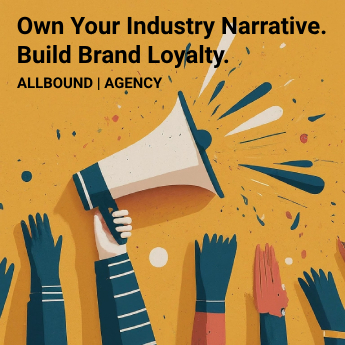In the evolving world of marketing, it has become crucial for businesses to create strategies that are both memorable and effective in attracting potential consumers. Two paradigms that have taken centre stage in this arena are Inbound Marketing and Event Marketing. Combining Inbound Marketing and Event Marketing can form a powerful combination that can make your marketing strategies more comprehensive and efficient. Dive in with us, and let’s uncover the how and why of this amalgamation.
Overview of Inbound Marketing
Definition of Inbound Marketing
Inbound marketing, a term coined by HubSpot, refers to the strategic process of attracting customers by curating engaging content tailored to their preferences and needs. It’s a methodology that is all about creating experiences tailored to your customers.
Principles of Inbound Marketing
Inbound marketing thrives on three core principles: attract, engage, and delight. The aim is to create content that addresses the problems of your potential customers, offering solutions that drive them towards your business.
Benefits of Inbound Marketing
Inbound marketing comes with a plethora of benefits:
– Builds credibility and trust with consumers
– Attracts quality traffic and higher conversions
– Provides valuable data for continuous improvement
– Is cost-effective in comparison to traditional marketing methods
Overview of Event Marketing
Definition of Event Marketing
Event marketing revolves around promoting a product, brand, or service through in-person interactions. Events can range from small breakfast meetings to colossal conventions hosting thousands of attendees.
Types of Event Marketing
Event marketing can take different forms such as trade shows, webinars, seminars, conventions, sponsored events, product launches or networking events, to name just a few.
Benefits and Challenges of Event Marketing
Event marketing allows for direct customer engagement, immediate feedback, and the generation of strong leads. However, it also comes with its set of challenges including high costs, logistics management, and measurability issues.

Combining Inbound Marketing and Event Marketing
Need for blending Inbound and Event Marketing
In a world where digital and physical worlds co-exist, combining inbound marketing with event marketing can offer businesses a comprehensive way of reaching out to consumers. This blend can enhance brand visibility, foster relationships, and lead to higher consumer retention.
Practical Steps to Integrate Inbound and Event Marketing
Leveraging Digital and Traditional Event Marketing Tactics
To successfully merge inbound and event marketing, one needs to effectively assimilate traditional and digital marketing tactics. You can use social media to promote your events while also employing traditional banner stands and promo materials at the event itself.
Use of Inbound Marketing Tactics before, during, and after an Event
Before an event, inbound tactics can revolve around creating buzz through blogposts, emails, and social media promotions. During the event, live tweeting, feed streaming, and real-time interactions can keep the buzz alive. Post-event, inbound tactics should focus on extending connections and enhancing relationships, for instance by sharing event highlights, insights or thanking attendees for their presence.
Content Creation and Promotion as a Crucial Link between Inbound and Event Marketing
Creating valuable content and using it to promote your event attract audiences. Conversely, you can also use events to drive people towards your rich content. Good quality content goes a long way in creating trust and superior customer experience.
Case Studies of Successful Integration
Case Study 1: Example of a successful marriage of Inbound and Event Marketing
The INBOUND event hosted by HubSpot is a brilliant example of combining inbound and event marketing. Recognized as a content-driven spectacle, this event builds excitement through content all year around, ensuring the attendance of thousands.
Case Study 2: Explanation of how Inbound Marketing techniques can enhance Event Marketing
Adobe’s annual summit uses inbound tactics to dramatically boost their event marketing. Through teasing sessions, speaker reveals and countdowns, Adobe keeps their audience hooked and engaged in anticipation of the event.
Case Study 3: Ways in which Event Marketing can supercharge Inbound Marketing
TED Talks effectively uses event marketing to enhance their inbound marketing. The talks given at their events create a substantial amount of engaging content that draws in online viewership and increased subscriptions long after the events are over.

Key Takeaways and Best Practices
Top five keys to successfully merge Inbound and Event Marketing
1. Understand your audience
2. Use social media effectively
3. Foster partnerships
4. Create engaging content
5. Measure your efforts and adjust accordingly
Best Practices in both Inbound and Event Marketing
Some best practices include: Keeping your audience at the forefront, always providing valuable content, leveraging technology to facilitate interaction, and routinely analyzing and adjusting your strategies.
Steps to Avoid Pitfalls while integrating Inbound and Event Marketing
Some handy tips to keep in mind include: ensuring your event aligns with the brand image you want to promote; avoid focusing strictly on sales, instead aim to build relationships; and remain flexible and ready to adapt to changing circumstances.
Potential Future Trends in Integrating Inbound and Event Marketing
Impact of virtual and hybrid events on the intertwining of Inbound and Event Marketing
Virtual and hybrid events can exponentially broaden your audience reach and open fresh opportunities for combining inbound and event marketing. This combination instils more robust marketing strategies that can be powerful tools in a post-pandemic world.
Emerging technologies and tools influencing the future of Inbound and Event Marketing
Emerging technologies such as AR/VR, chatbots and AI are quickly transforming both event and inbound marketing. By implementing these technologies, companies can provide more engaging, personalized experiences to attendees.
Predictions of future trends concerning the combination of both marketing styles
As the marketing landscape evolves, event marketing and inbound marketing are likely to continue merging even further. Hybrid and VR events will become commonplace and mass personalization will be achieved by using AI and machine learning.
To sum it up, in the world of marketing, the integration of Inbound Marketing and Event Marketing can potentially set businesses on the path to greater consumer interaction and higher conversion rates. Be it enhancing customer experiences or reaching the right people at the right time with the right content─the union of these two styles can definitely help grow your business. Draw on these insights and get started on crafting your successful marketing plan!

